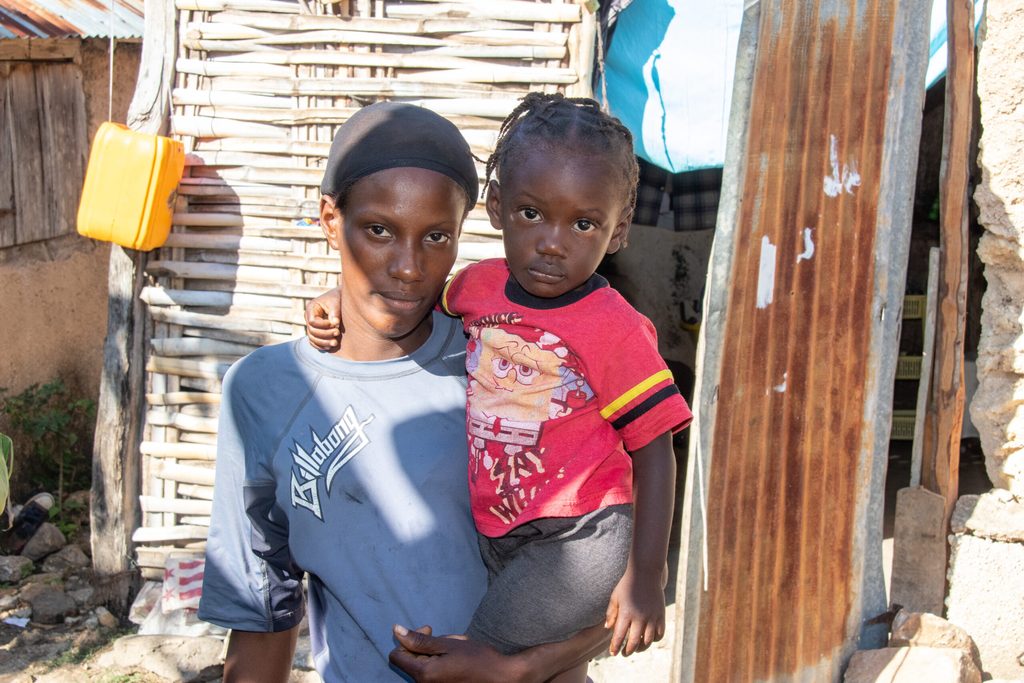
“I am pregnant and I suffer from malnutrition, because I don’t get food normally. Sometimes I don’t eat anything for a day, I buy food on credit, the neighbors give me some food, I have to give it to my son because he doesn’t have the same level of resistance as me.” This are the words from Locita, a 24-year-old single mother from the Nippes department of Haiti. She lives with her father and 3-year-old son in a one room house. They have a kitchen outside but this is shared with other people who live in the area.
“I don’t have any activity to generate income, sometimes people (families and acquaintances) give me food, money or other things.” Said Locita
According the Integrated Food Security Phase Classification update from March to June 2022, 1.32 million people in Haiti are classified in Emergency and 3.18 million people in Crisis. This means a total of 4.3 million people in risk of acute food insecurity.
This crisis in Haiti has resulted from several internal events in recent years that have affected political, economic and social stability. First, the assassination of President Moise on July 7 2021, which triggered insecurity, increased violence, kidnappings, civil unrest, increased food insecurity, among others. Secondly, the 7.2 magnitude earthquake that struck the southern of the country in August 2021. Gang violence and political uncertainty remain among the main drivers of insecurity and social unrest. A situation that affects the most vulnerable population: children and their families. In addition, the Covid19 pandemic and soaring prices of food, fuel and fertilizer due to the conflict in Ukraine has meant the buildup of a global crisis that is also affecting countries like Haiti.
“In the health center, I received a small amount of money, which I used to pay debts to people who gave me on credit. Then I bought food for the house.” Said Locita who says even the father of her son offered to take care of her and her child, she did not want because he did not respect her mother: “The father of the child wants to take care of me. He hit my mother in the face, how could I live with someone who does not respect my mother.”
Hunger also places girls and woman at risk of gender-based violence, sexual exploitation, child labor, early pregnancies and health problems. “My son doesn’t eat fat or drink milk because he has typhoid, sometimes if I don’t feed him because I can’t afford it.” Locita stated.
Plan International’s response to support affected families like Locita’s. includes supporting to have access to food and safe water through cash transfers for vulnerable households, the provision of water storage kits, purification tablets, and improved collective water systems. “Even though I don’t know who is doing the transfer to me, I say thank you to all those who helped me, especially to Plan International.” Said Locita.